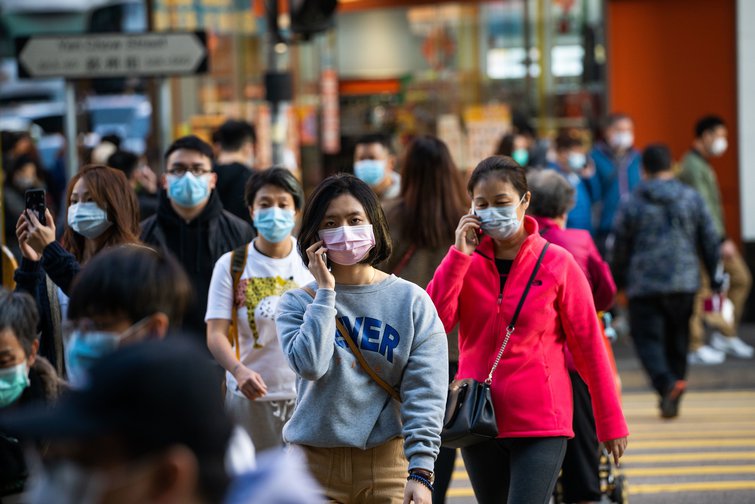
By Jonathan Corpus Ong, Gideon Lasco, for Open Democracy
More needs to be done to stop the harmful stereotypes that surface during outbreaks.
The way we understand illness is rarely defined by science alone. That is particularly evident when there are gaps in scientific knowledge – cliche and prejudice fill the void. Narratives of karmic debts, secret conspiracies, and depraved deviants offer the most irresistible explanation. In our fractious times, misinformation – spread wittingly and unwittingly – through the media and online only exacerbates these fallacies.
We see this today both in media coverage and public response to the Coronavirus outbreak. Overnight, to be from Wuhan – or even just to be Chinese – is to be a dangerous “other” to be shunned, banned from entry (regardless of the medical rationale for such a decision), and even blamed for the outbreak. In a matter of days, millions of mostly healthy people have found themselves trapped in their own homes – and unwelcome anywhere else.
As social scientists, we fear that such dangerous narratives are encouraging racism and hate by portraying vulnerable populations as virulent carriers, rather than victims worthy of empathy and sympathy. The outbreak comes at a time when mainland Chinese people are already facing prejudice in neighbouring Asia countries. In Hong Kong, mainlanders have long been referred to by the slur “locust”. This intra-ethnic mockery, of course, plays out against a broader political battle for sovereignty from Beijing.
Recently the Twitter account Free with Hong Kong whose bio includes “Fight for Freedom” posted pictures of Chinese restaurants serving newborn mice and bat soup to diners with the hashtags #chinazi and #WuhanCoronaVirus. Political resistance might be moral justification for such incendiary tweets, but this betrays both bigotry and amnesia. The SARS epidemic of 2003 is widely suspected to have originated from civet cat in the Cantonese province of Guangdong, bordering Hong Kong.
In the Philippines, China’s territorial encroachment of the South China Sea not to mention President Rodrigo Duterte’s increasingly cozy ties with Beijing have triggered political and cultural resentments – many of which, while justifiable per se, have been projected onto mainland Chinese tourists and workers. In the recent election of 2019, opposition politicians and influencers seeking political leverage fanned the flames of anti-China sentiment through emotionally manipulative memes and racist speech.
Philippine responses to the coronavirus have been similarly hostile. On Facebook, a transport blogger recently shared a screenshot of a ride-share driver refusing to serve mainland Chinese clients with the message, “If you are Chinese national you are not welcome because all of have Wuhan virus” [sic]. Instead of calling this out as unacceptable, the blogger’s resigned caption simply was: “Too harsh? Or fair enough?”
Other influencers have peddled conspiracy theory from alt-right news sites such as The Washington Times (also known for promoting climate change denial), insinuating the virus might be Beijing’s secret biological weapon to undermine their political and territorial rivals.

Unfortunately, global news outlets have similarly contributed to these unhelpful responses. An article in Foreign Policy for instance, framed the outbreak as a consequence of the Belt and Road Initiative, essentially blaming Xi Jinping who “made it possible for a local disease to become global menace”. Unfounded claims and conspiracy theories meanwhile are widely shared by incendiary tabloids Daily Mail and The Sun in the UK (infamous for their anti-immigration headlines) placing undue attention and inviting revulsion towards eating bats and other animals, implying that the Chinese people are to blame for the outbreak. Never mind that bats are consumed in many parts of the world, from Africa to Oceania.
This is not a new phenomenon. The SARS epidemic was met with similar responses, including the perpetuation of Asian stereotypes. The scare over the Ebola virus was likewise laden with prejudice against Africans. As Donald Trump’s tweets during those times show (e.g. “Stop the EBOLA patients from entering the U.S. Treat them, at the highest level, over there. THE UNITED STATES HAS ENOUGH PROBLEMS!”), it can lead to unwarranted actions and further incite panic.
Both journalists and the general public can do better by amplifying stories that recognise the agency of doctors and responders on the ground, and sharing (and verifying) stories and videos produced by ordinary people in Wuhan. These stories remind us that the outbreak is experienced most exceptionally as a tragedy by people that both mainstream news and fake news sites have dehumanised.
Before sharing and posting clickbait articles, it’s healthy to engage with the roots of our prejudice and our selective empathy. Are we conflating the Chinese government, whose past or present actions we may object to, with the Chinese people? What lessons should we heed from previous epidemics of SARS, Ebola, and even AIDS and the secondary catastrophe of discrimination and social shaming that they have inflicted to particular communities?
By Jonathan Corpus Ong, Gideon Lasco, for Open Democracy




